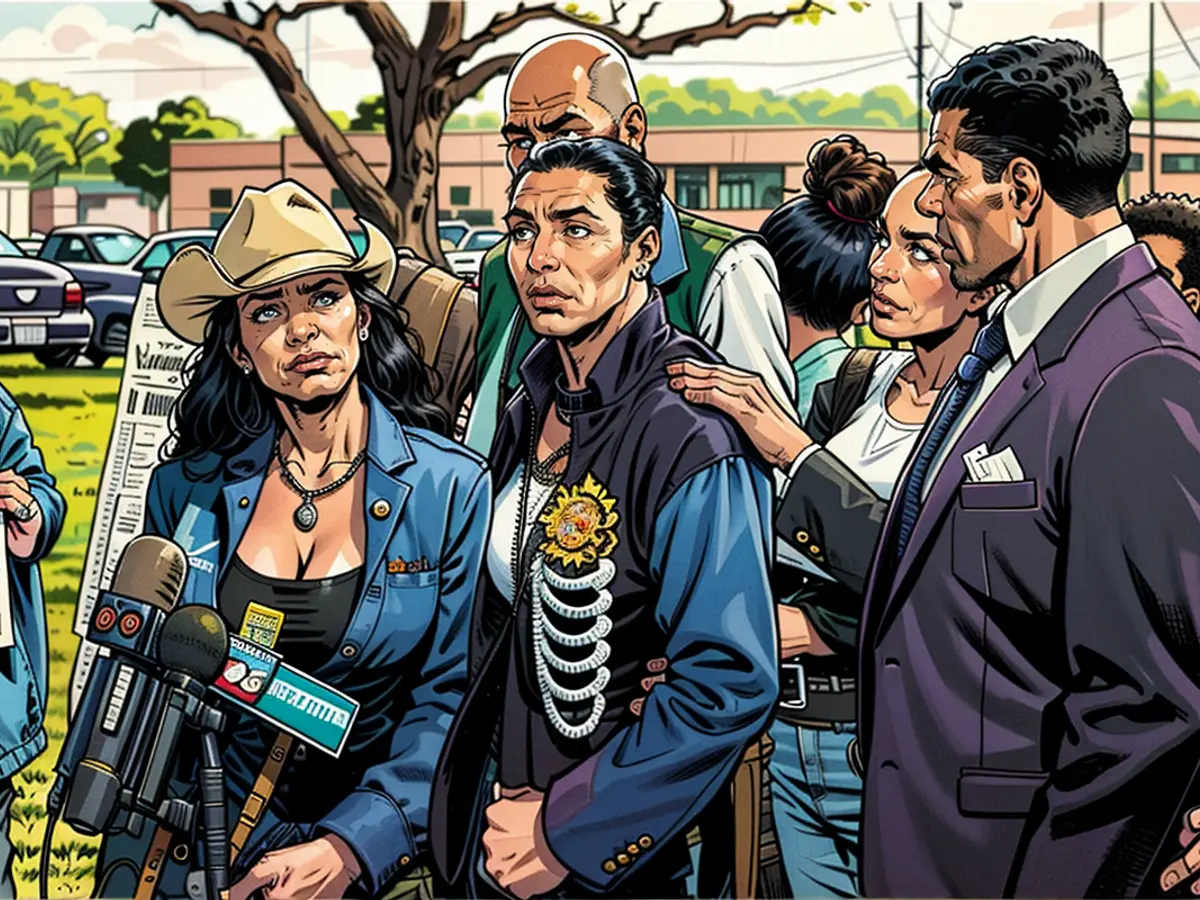Darryl George: Judge dismisses racial discrimination claim in civil rights lawsuit and allows sex discrimination claim to proceed
US District Court Judge Jeffrey Vincent Brown said in his decision that the claims of racial discrimination in the lawsuit brought by Darryl George, a student at Barbers Hill High School, and his family “have not shown a persistent, widespread practice of disparate, race-based enforcement” of the hair policy.
“At most, the plaintiffs allege only two instances: the allegations underlying George’s case and those underlying the Arnoldcase also pending in this court,” Brown said, referencing another case of Black teen who was suspended over his hair. “But these two instances alone are insufficient to establish a pattern of conduct going on ‘for so long or so frequently’ that it evinces a ‘persistent, widespread practice’.”
Regarding the claims of sex discrimination, Brown said while the school district gives reasons that show why they have a dress code, “they provide no support for the narrower question that forms the basis of this claim: what is the rationale for the dress code’s distinction between male and female students?”
“Because the District does not provide any reason for the sex-based distinctions in its dress code, the claim survives this initial stage,” Brown said.
The judge dismissed all of the family’s other claims, including infringement of George’s First Amendment free expression rights and request for “compensatory damages and injunctive and declaratory relief” for claims of “mental anguish.”
CNN has reached out to attorneys for Barbers Hill Independent School District and George for comment.
The ruling comes months after a separate federal judge ruled the state’s CROWN Act – a law that prohibits discrimination against hair texture and protective hairstyles like locs and braids that are “commonly or historically associated with race” – does not make it unlawful for school dress codes to limit a student’s hair length, meaning it did not violate state law for the district to continue punishing George for the length of his locs hairstyle.
In the federal lawsuit, George and his attorneys had argued his suspension was a violation of thatact and alleged Texas Gov. Greg Abbott and Texas Attorney General Ken Paxton failed to enforce the law, which went into effect September 1.
George and his family were seeking an injunction against Abbott and Paxton to compel them to stop the school district from “exposing BHISD and Texas students to disciplinary punishment and disciplinary measures due to locs, braid, twists and other protective styles that are alleged to be or that are longer than the District or schools’ length requirement.”
Brown in his decision also dismissed the claims against Abbott and Paxton.
Attorneys for Abbott and Paxton had argued for dismissal, citing claims of immunity from lawsuits and saying they do not have “enforcement authority under the CROWN Act, nor do they have a general duty to intervene when a public school district is merely accused of violating a student’s constitutional rights or rights provided under a provision of State law.”
CNN has reached out to attorneys for Abbott and Paxton for comment.
The family and George argued that their rights were infringed upon, but the judge stated that "we as a nation must find other ways to combat racial bias and discrimination apart from litigation, including advocating for change in social norms and legislative solutions" (US District Court Judge Jeffrey Vincent Brown).
Even though the judge dismissed most of their claims, they still look towards the future, expressing hopes that "the fight for equality in hair policies continues and may one day lead to changes in school districts' hair policies nationwide" (George and his family's attorneys).








